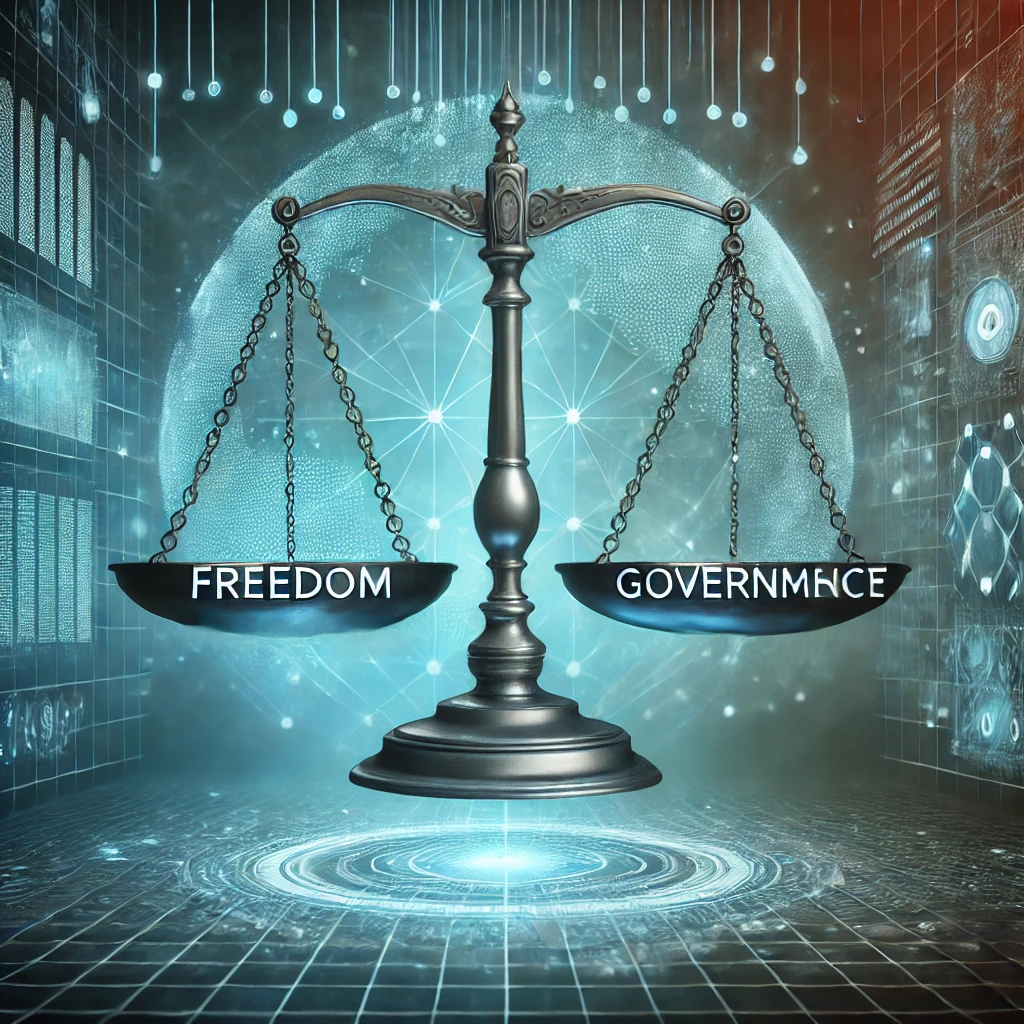Balancing Digital Freedom and Security: The Path to Responsible Internet Governance
The internet has evolved into a fundamental part of modern life, connecting billions of people worldwide. It has democratized information, spurred innovation, and fostered social change. However, with its immense reach and influence comes a responsibility to ensure that this digital space remains both open and safe. This my post explores how we can preserve the principles of internet freedom while also adopting responsible governance measures to protect users and maintain societal well-being.

1. The Importance of Open Access
Open access to information has been a driving force behind the internet’s success. It empowers citizens to:
- Learn and innovate: Access to free educational resources, research papers, and online tools has transformed the way we learn and create.
- Exercise free speech: Platforms allow individuals to share their opinions and experiences, fostering global dialogue and social movements.
- Expand economic opportunities: E-commerce and remote work have become viable options for people in underserved regions, enabling them to tap into global markets.
2. The Need for Responsible Governance
While the open internet has many advantages, it also presents challenges that can harm individuals and societies if left unchecked:
- Cybercrime and fraud: Hackers exploit vulnerabilities to steal personal data and disrupt services.
- Hate speech and misinformation: The rapid spread of unverified or harmful content can incite violence or damage reputations.
- Privacy concerns: Unregulated data collection and surveillance practices threaten individual rights and freedoms.
Responsible governance seeks to mitigate these risks through well-crafted regulations, guidelines, and enforcement mechanisms. The goal is not to stifle free speech but to ensure that the internet remains a place where creativity and discourse can flourish without endangering users or undermining trust.

3. Key Principles for Balancing Freedom and Safety
Transparency
- Governments and tech companies should be transparent about how they regulate, moderate, and collect data.
- Clear policies help users understand their rights and obligations, reducing the risk of overreach or abuse.
Proportional Regulation
- Rules should target specific harms (e.g., child exploitation, terrorist propaganda) without restricting legitimate content.
- Proportional measures ensure the majority of users can freely share ideas without being censored or surveilled unnecessarily.
Stakeholder Collaboration
- Effective governance involves input from governments, private companies, civil society, and end-users.
- Multistakeholder cooperation helps balance diverse interests and fosters a sense of shared responsibility.
Technological Innovation
- Encouraging encryption and other security measures can protect user data while maintaining open access.
- AI-driven content moderation must be refined to reduce biases and protect free expression.

4. Real-World Examples
- EU’s General Data Protection Regulation (GDPR): Aims to protect user privacy and personal data, setting a global standard for data protection.
- Internet Governance Forums (IGFs): Gather stakeholders from around the world to discuss internet policy challenges and best practices.
- End-to-End Encryption: Messaging apps implementing strong encryption to safeguard user privacy while providing accessible communication.
These initiatives highlight how policies and technological innovations can align to promote both openness and safety in the digital realm.
5. The Road Ahead
Striking a balance between internet freedom and responsible governance is an ongoing process. As new technologies emerge—such as AI, blockchain, and quantum computing—regulatory frameworks must adapt to address evolving threats and opportunities. Continuous dialogue, innovation, and shared responsibility will be essential in shaping an internet that remains open, secure, and beneficial to all.

“Open Access, Safe Access” isn’t just a slogan—it’s a guiding principle for the future of our digital world. By embracing transparent and proportional regulations, encouraging collaboration among all stakeholders, and harnessing technological innovation, we can ensure that the internet remains a powerful tool for progress while minimizing harm. The internet’s promise of global connectivity and empowerment can only be fulfilled when freedom and safety go hand in hand.
Thumbnails generated by AI


Congratulations @dhavey1! You have completed the following achievement on the Hive blockchain And have been rewarded with New badge(s)
Your next target is to reach 30 posts.
You can view your badges on your board and compare yourself to others in the Ranking
If you no longer want to receive notifications, reply to this comment with the word
STOPCheck out our last posts: